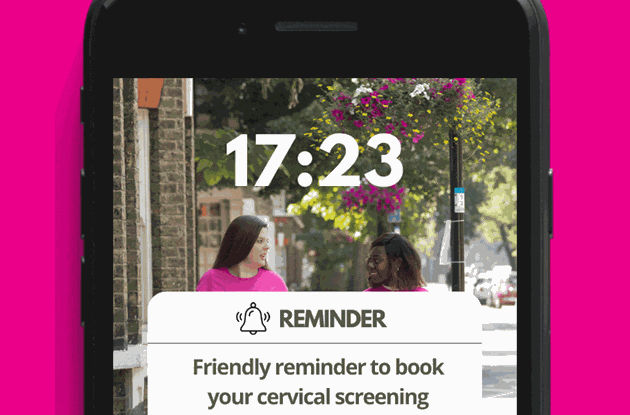Council joins forces to boost cervical cancer screening

A campaign to boost screening for cervical cancer in Eastleigh Borough has been launched by the Council, working with local health services, as the national Cervical Cancer Prevention Week gets under way.
The Local Primary Care Network (PCN), consisting of St Andrew’s, Boyatt Wood, Archers and Parkside practices, have highlighted that cervical cancer screening take up and early detection for local residents is lower than in other local areas. Their message is that missed appointments can lead to late diagnosis, which contributes to poorer outcomes.
According to Public Health England data (2020-21) the Eastleigh town area lags behind other areas of the wider NHS West Hampshire Clinical Commissioning Group (West Hants CCG) for cervical cancer screening uptake, more so for over 50s (by 2.4% for 25-49 year-olds, 3.9% for 50-64 year-olds). This West Hants CCG area include areas in Winchester, Eastleigh, Andover and New Forest.
The Council are teaming up with the PCN and the Jo’s Cervical Cancer Trust charity to increase awareness of symptoms and boost take-up of screening in the Eastleigh town centre and surrounding areas. The Cervical Cancer Prevention Week runs from 17-23 January and will primarily focus on women aged 25-64.
Nationally one in three women and people with a cervix don't attend cervical screening
Covid has seen a reduction in bookings and attendance at screenings within the target periods of three and five years, depending on age. With 99.8% of cases seen as preventable – screening is a free and great test to help prevent cancer before it develops.
To help overcome nervousness in some patients, the campaign points out that there are lots of ways to make the test more comfortable, for example, you can ask
- to book a longer or double appointment,
- for a doctor/nurse of a particular gender,
- for a smaller speculum, or
- to put the speculum in yourself
Cervical cancer prevention doesn't stop at screening. Nationally 220,000 patients every year are told they have cervical cell changes after their screening, and many more given a HPV diagnosis. This can mean more tests and treatments, and for some it can be an incredibly hard time.
Samantha Dixon, Chief Executive, Jo’s Cervical Cancer Trust: “We want everyone to have the support and facts they need to access cervical screening and deal with an unexpected result. Cervical screening can help stop cervical cancer before it starts so it’s an incredibly important test. Help raise awareness by sharing your story this week and show others they aren’t alone”
The Council’s Cabinet Member for Health, Councillor Tonia Craig, said: “As a local authority dedicated to promoting health in our communities we’re keen to add our voice to this excellent campaign to tackle a preventable cancer. Together, we will share tips and experiences to help others feel more able to attend screenings and make those facing an unexpected result know they aren’t alone”.
Cervical cancer is the 14th most common cancer for women in the UK There are around 3,200 new cervical cancer cases in the UK every year, that's nearly nine every day, with a survival rate of 51% (Cancer Research UK).
The symptoms of cervical cancer include:
- vaginal bleeding that is unusual for you, including after the menopause, after sex, or between regular periods,
- changes to vaginal discharge,
- pain or discomfort during sex,
- unexplained pain in your lower back or between your hip bones (pelvis).
The PCN and the Council urge residents to book and attend their cervical screening appointments: every three years for 25-49 year-olds and every five years for 50-64 year-olds, and don’t hesitate to see your GP if you're noticing symptoms.
Get involved with prevention week:
Find out about cervical screening
Read information about different results from cervical screening
Read stories from women who have had cervical cell changes
Join the campaign on social media using #CervicalCancerPreventionWeek
Useful links for more information:
Cervical screening - NHS (www.nhs.uk)
